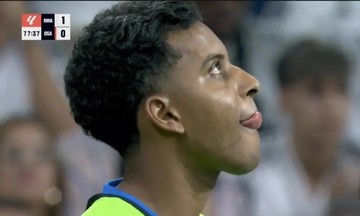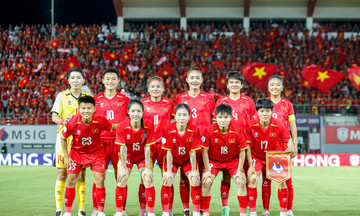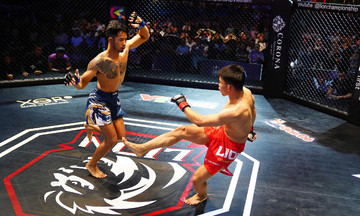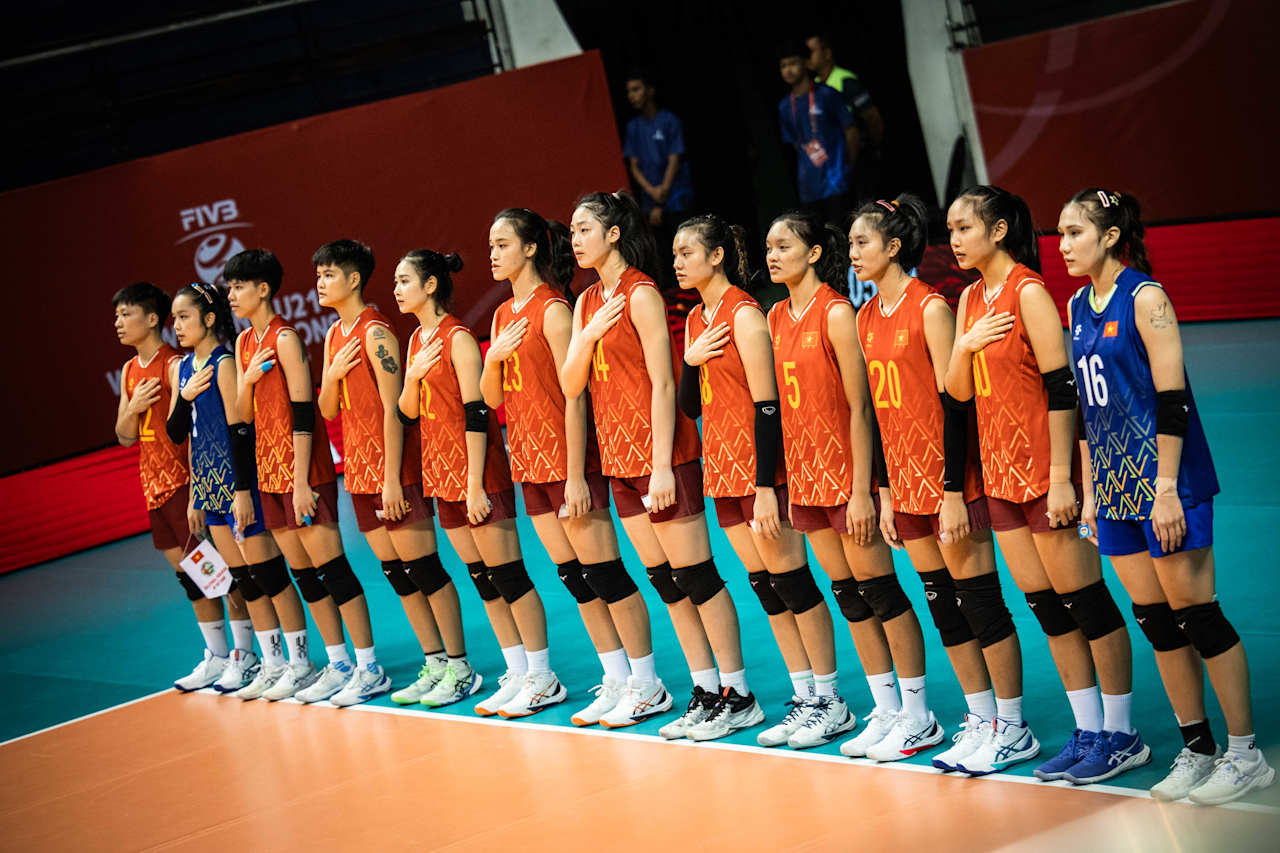 |
Vietnam participating in the 2025 FIVB Volleyball Women's U21 World Championship in Indonesia. Photo: Volleyball World |
Vietnam participating in the 2025 FIVB Volleyball Women's U21 World Championship in Indonesia. Photo: Volleyball World
In a statement on the evening of 12/8, the International Volleyball Federation (FIVB) determined that a Vietnamese player was ineligible to compete in the 2025 FIVB Volleyball Women's U21 World Championship. According to article 12.2 of the FIVB Disciplinary Regulations 2023, Vietnam's matches in the tournament involving this player will be forfeited 0-3. As a result, Vietnam's 3-1 victory over Indonesia, Serbia, and Canada became 0-3 losses. Their 1-3 loss to Argentina became 0-3, and only their 3-1 win against Puerto Rico remained unchanged. Vietnam dropped from second to last place in Group A, losing their spot in the round of 16 and now competing in the 17th-24th place classification round.
The decision of the FIVB Disciplinary Panel at the tournament is final and cannot be changed, even if an appeal is successful. However, this is only the initial penalty. The main FIVB Disciplinary Panel can impose additional disciplinary actions, including competition bans and suspensions.
Article 12.2 states: The violating club or federation must pay a fine of 30,000 Swiss francs (approximately 980 million VND) for each ineligible player. Players, federations, teams, and related officials may even be suspended from professional activities for up to two years. In addition, the FIVB has the right to ban Vietnamese national teams, including U17, U19, U21, and the senior team, from participating in international tournaments organized by the FIVB, the Asian Volleyball Confederation (AVC), or in Southeast Asia. The athletes will be prohibited from registering for international tournaments through the FIVB's transfer system.
Therefore, the VFV's objective in appealing is to prevent these further penalties. Based on the FIVB's statement, the player's ineligibility could be due to lack of citizenship, incomplete citizenship change procedures, age violations in age-restricted tournaments, gender violations, competing while under suspension, or failing identity document verification. In their announcement, the FIVB did not specify who violated the rules or what the violation was.
Speaking with VnExpress, a sports lawyer said the penalty, issued in less than a day from the time of inspection, is not a major issue. Global sports governing bodies like FIVB or FIFA don't have strict deadlines for issuing penalties, but rather base their decisions on regulations established by the federation and other international organizations. "Vietnam needs to present arguments and evidence to prove they did not violate the rules within the stipulated timeframe," the lawyer said. "The VFV needs to adhere closely to the regulations stated by the FIVB to address the core issue."
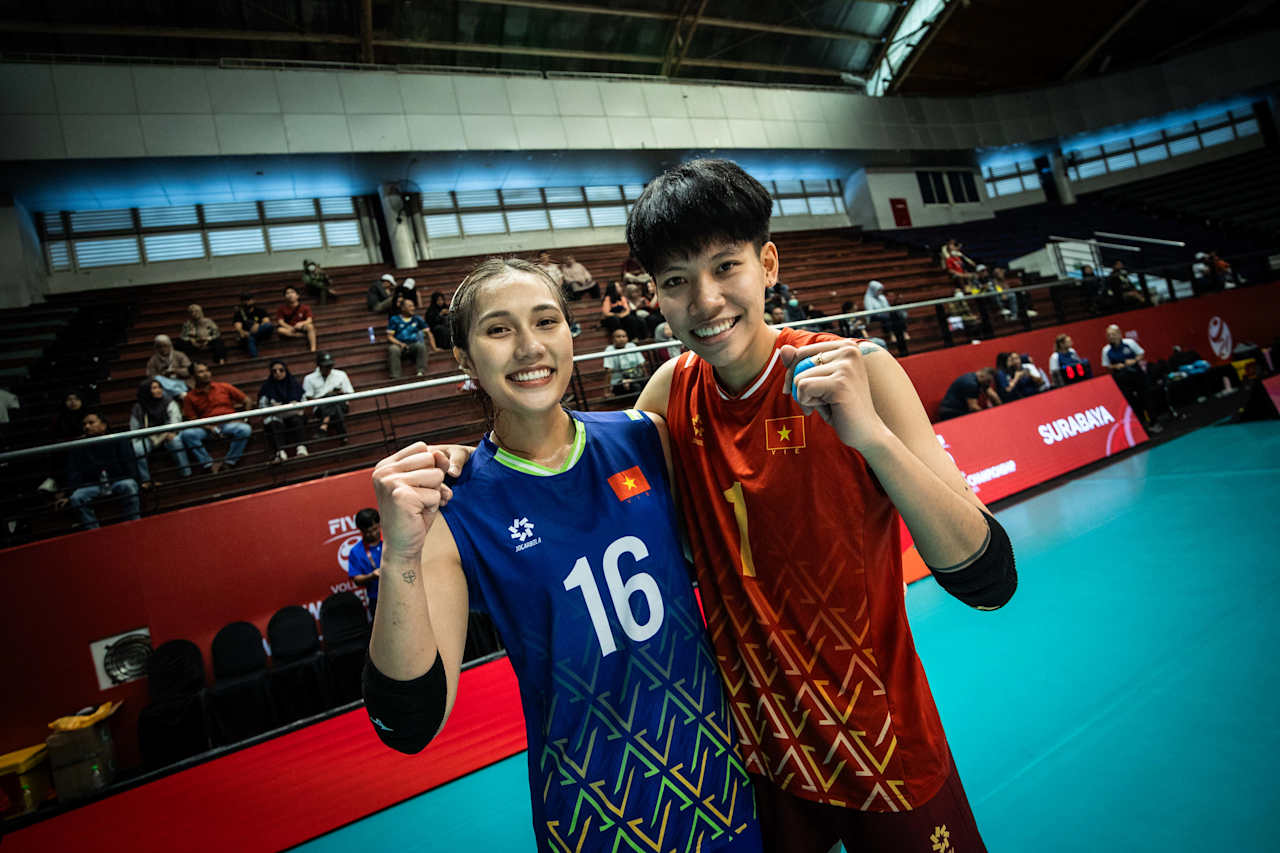 |
Athletes Le Nhu Anh (right) and Nguyen Lan Vy (left) after Vietnam's match against Serbia in Group A of the 2025 FIVB Volleyball Women's U21 World Championship. Photo: Volleyball World |
Athletes Le Nhu Anh (right) and Nguyen Lan Vy (left) after Vietnam's match against Serbia in Group A of the 2025 FIVB Volleyball Women's U21 World Championship. Photo: Volleyball World
Regarding evidence, on 13/8, VFV General Secretary Le Tri Truong confirmed that he had submitted original documents certified by competent authorities in Vietnam to the FIVB. He also emphasized that Vietnam "did not cheat or falsify the biographical records" of the athletes the FIVB requested to inspect.
Tournament regulations stipulate that athletes' biographies are verified by birth certificates. All personal information matched the tournament registration. However, one athlete's birth certificate was issued a year later than their actual birthdate, and another's two years later, raising questions from the FIVB.
In terms of reasoning, the VFV explained that this was common in rural Vietnam at the time. One of the players involved is from an ethnic minority group, and her parents are illiterate, which led to the delay in birth registration.
Additionally, regarding the possibility of the FIVB applying other measures that arose during the tournament to prove Vietnam's fault, such as gender verification, the FIVB only relies on birth certificates as legal basis. The organization recommends, but does not require, further verification measures as this is a sensitive and private matter. As a member federation, the VFV also applies these FIVB regulations to domestic tournaments.
"The VFV will prove that the Federation, club, or athlete did not intentionally make a mistake, but that it was due to unavoidable circumstances. In fact, I affirm that the VFV and the athlete did not make any mistakes," Mr. Truong told VnExpress regarding this matter.
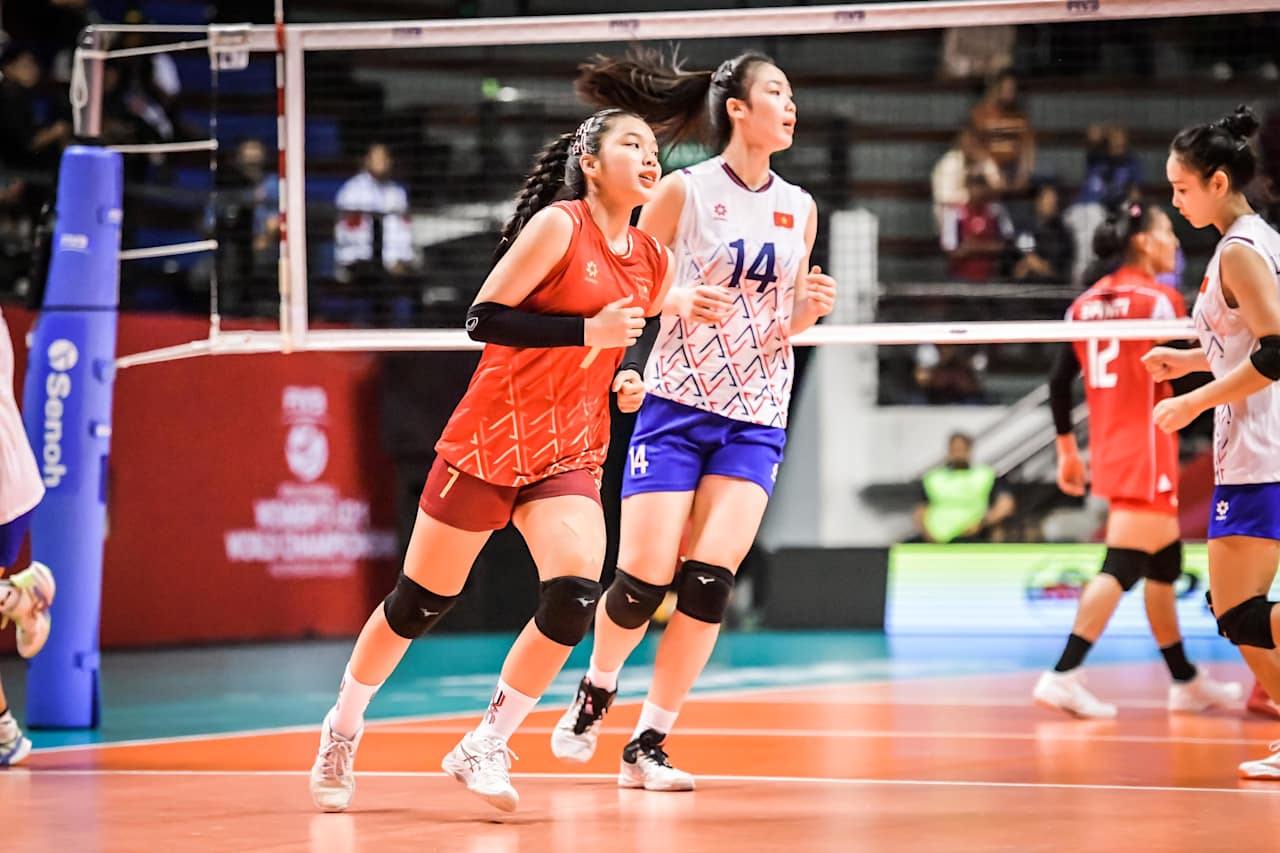 |
Vietnamese players are still in Indonesia competing in the 17th-24th place classification round of the 2025 FIVB Volleyball Women's U21 World Championship. Photo: Volleyball World |
Vietnamese players are still in Indonesia competing in the 17th-24th place classification round of the 2025 FIVB Volleyball Women's U21 World Championship. Photo: Volleyball World
In global medicine, the term "intersex" describes individuals with intersex traits. They may have chromosomes, external genitalia, or internal reproductive organs, or hormones that differ from the traditional definitions of male and female. Medical experts have also identified numerous syndromes, such as Congenital Adrenal Hyperplasia (CAH), 5-alpha-reductase deficiency (5-ARD), Androgen Insensitivity Syndrome (AIS), and Swyer syndrome, which cause women to exhibit biological characteristics of males. These characteristics may cause them to appear increasingly masculine over time.
Swyer syndrome is a type of Disorder of Sex Development (DSD) with an incidence of 1 in 100,000 births. Individuals with this syndrome have XY chromosomes but develop a female phenotype, with external genitalia appearing completely female. Advanced testing is required for detection.
Medical experts from the International Olympic Committee (IOC), along with world federations such as athletics, swimming, and boxing, have stated that the XX-XY boundary is not entirely clear, as some individuals have differences in sex development, leading to anatomical features that do not correspond to their assigned sex.
The VFV must submit an appeal to the FIVB Secretariat within 14 days of the penalty decision (12/8). The appeal must be accompanied by a copy of the contested decision and a bank certificate confirming payment of the administrative fee of 2,000 Swiss francs. The FIVB may decide to refund the fee if the appeal is successful.
If the appeal is unsuccessful, the VFV still has the right to further appeal by submitting the case to the Court of Arbitration for Sport (CAS) within 21 days of the decision. The CAS is an international body responsible for resolving sports-related disputes through arbitration. It was established in 1984 and is headquartered in Lausanne, Switzerland. It is considered the supreme court for sports disputes.
Hieu Luong




